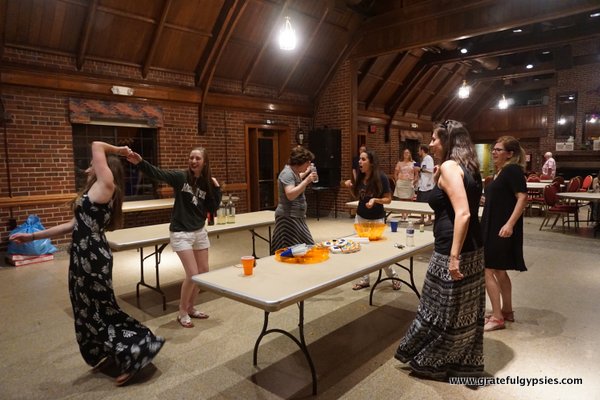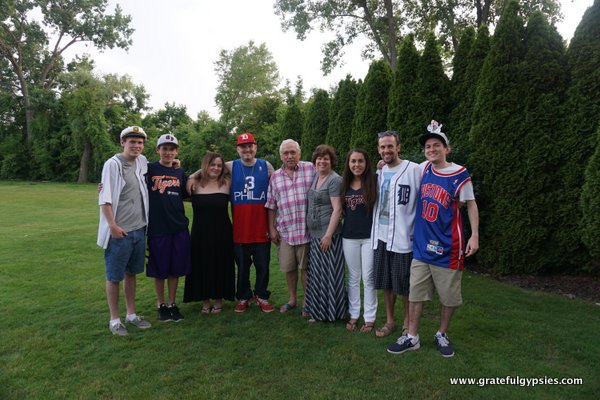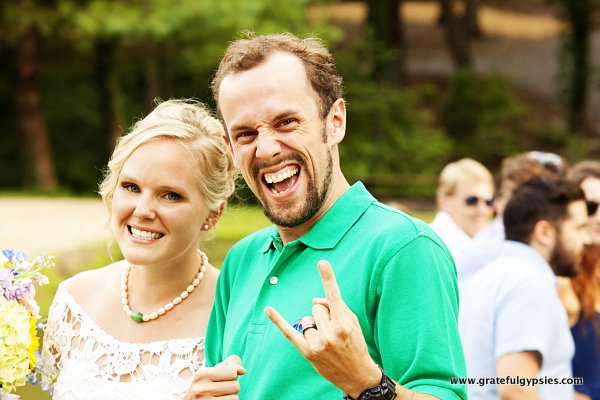Mi Familia (My Family) Posted by sasha on Aug 2, 2017 in Spanish Grammar
One of the best ways for beginners of any language to practice is by talking about your family. By giving basic details such as name, age, and job for your family members, you get to practice making introductions several times. You can also practice asking other people about their family members to get you familiar with question words and structures. To help you out, here’s a Spanish lesson on “Mi Familia.” Let’s start with the Spanish vocabulary you’ll need.
Family Vocabulary
familia
padres/papás
padre
papá
madre
mamá
hijos/niños
hijo
hija
hermanos
hermano
hermana
esposo/esposa
esposo/marido
esposa/mujer
abuelos
abuelo
abuela
parientes
tío
tía
primo/prima
sobrino
sobrina
nietos
nieto
nieta
suegro
suegra
cuñado
cuñada
yerno
nuera
padrastro
madrastra
hermanastro
hermanastra
hijastro
hijastra
medio hermano
media hermana
family
parents
father
dad
mother
mom
children
son
daughter
siblings
brother
sister
spouse
husband
wife
grandparents
grandfather
grandmother
relatives
uncle
aunt
cousin
nephew
niece
grandchildren
grandson
granddaughter
father in law
mother in law
brother in law
sister in law
son in law
daughter in law
stepfather
stepmother
stepbrother
stepsister
stepson
stepdaughter
half brother
half sister
Question and Answer
Now that you’ve got your family tree down en español, it’s time to do a little Q&A. Here are some common questions you might ask/get asked about family members:
¿Cómo se llama su…?
What is your …’s name?
Se llama/llamo…
Her/His name is…
¿En que trabaja (él/ella)?
What does he/she do?
(Él/ella) es…
He/she is a/an…
¿Cuántos años tiene (él/ella)?
How old is he/she?
(Él/ella) tiene… años.
He/she is… years old.
¿Dónde vive (él/ella)? ¿Dónde viven (ellos/ellas)?
Where does he/she live? Where do they live?
(Él/ella) vive en…/(Ellos/ellas) viven en…
He/she lives in…/They live in…
¿Tiene hijos (él/ella)?
Does he/she have children?
Sí, (él/ella) tiene… hijos./No, (él/ella) no tiene hijos.
Yes, he/she has… children./No, he/she doesn’t have children.
Note that once you’ve established the subject and their gender, you don’t really need to use pronouns in follow-up questions. If you’re continuing the conversation about the same person/people, you can drop the pronouns after the first question. Go ahead and try to answer some of those questions about people in your family to practice!
Mi Familia
Combine all of that and try to introduce your family in Spanish. I’ll go first! Keep in mind that I’m still a super beginner, so I’m focusing on the basics here.
Mi familia es muy grande. Tengo seis hermanos – cuatro hermanos y dos hermanas. Soy el mayor. Tengo treinta y dos años.
Mi papá es doctor y mi mamá es enfermera. Ambos trabajan en un hospital.
Ya soy casado. Mi esposa se llama Rachel. Ella solo tiene un hermano. Ella también tiene una madrastra y un padrastro. Su familia me cae muy bien. Todavía no tenemos hijos.
Tengo abuelos por parte de mi madre. También tengo muchos tíos, tías, y primos.
Todavía no tengo sobrinos ni sobrinas, porque mis hermanos son jóvenes.
My family is very large. I have six siblings – four brothers and two sisters. I am the oldest. I’m thirty-two years old.
My dad is a doctor and my mom is a nurse. Both work in a hospital.
I’m already married. My wife’s name is Rachel. She has only one brother. She also has a stepmother and stepfather. I like her family very much. We do not have children yet.
I have grandparents on my mother’s side. I also have many uncles, aunts, and cousins.
I don’t have any nephews or nieces yet, because my siblings are young.
That’s all for me – now it’s your turn! Practice in the mirror or with a friend, or leave a comment below in Spanish and let us know about you and your family. More advanced readers can feel free to show off a bit. The rest of us can learn from you!

Build vocabulary, practice pronunciation, and more with Transparent Language Online. Available anytime, anywhere, on any device.








Comments:
Nav:
Hi. Wanted to learn spanish using your blog but finding it hsrd ti find your lessin 1 🙁